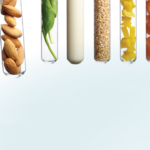
Of the many lessons learned during the pandemic, prioritizing our health has been the most vital.
From wholesome nutrition to a good night’s rest, there are many influences on wellness. Indeed, maintaining optimal nutrient levels is essential to staying healthy and supporting immunity. Discover the nutrients that can turbocharge your health today and in the future.
High-potency multivitamin and mineral formulas
It’s well-known that vitamins A, C, D, and E, B vitamins, and minerals, such as iron, selenium, and zinc, are needed for immune function. However, relying on diet alone for these nutrients can be challenging – finances, busy schedules, and food availability impact our daily nutrition. Resulting nutrient deficiencies can impair immune status and increase the risk of infection. There is good news – a multivitamin and mineral supplement can help restore nutrient levels for better infection resistance and faster recovery. Look for supplements that are:
- Sustainably sourced, whole food formulas
- Made with easily absorbed nutrients
- Designed for age-specific requirements
- Non-GMO and free of allergens
- Third-party tested for potency and purity
Vitamin A
Once known as the “anti-infective vitamin,” vitamin A is a fat-soluble nutrient involved in functions such as vision, cell growth, and immunity. In North America, vitamin A deficiency may result from malabsorption or severely restricted diets. Regarding immune health, vitamin A maintains barriers to microorganisms, promotes white blood cell function, and has shown therapeutic benefits against different infectious diseases.
Vitamin D3
Widely recognized for its bone health benefits, research continues to unravel vitamin D’s importance during different stages of life. Vitamin D regulates inflammation and our immune responses, and poor vitamin D status may increase the risk of viral infections, especially in the respiratory tract. Assess your vitamin D levels with a simple blood test and maintain levels with various food, some limited sun exposure, and supplements.
Vitamin C
Chances are you have a vitamin C supplement somewhere in your arsenal of common cold remedies. This essential antioxidant regulates the immune system and has antiviral and anti-inflammatory actions. High concentrations of vitamin C are found in white blood cells and are rapidly used during an infection. Research has shown that supplementing with vitamin C can help relieve common cold symptoms such as coughing and mucous congestion, reduce symptom duration, and improve our ability to resist harmful bacteria.
Zinc and selenium
Zinc and selenium are important minerals and antioxidants that support immune responses. A deficiency of selenium is associated with certain viral infections, and optimal selenium levels have been found to support immune cells such as natural killer cells and T cells. Zinc may also help defend against viruses, support white blood cells, and regulate immunity in the respiratory tract. Zinc deficiency can result in impaired immune function, which can be resolved with zinc supplementation.
N-acetyl-L-cysteine (NAC)
NAC is a nutritional supplement that provides a highly stable form of L-cysteine, an amino acid that acts as a precursor to the antioxidant glutathione. Low glutathione levels can impair the activity of T cells and natural killer cells. NAC also scavenges free radicals, reduces inflammation, promotes detoxification, and breaks down mucus. NAC supplementation has been shown to significantly decrease the frequency of influenza, as well as the severity and duration of most symptoms.
Quercetin
Quercetin is a well-known bioflavonoid naturally found in plants, fruits, and seeds. This powerful antioxidant is also known for supporting concerns such as allergies and immunity because of its anti-inflammatory and antimicrobial effects. Quercetin’s efficacy is limited by its low solubility and absorption; therefore, look for quercetin supplements designed to improve its bioavailability.
| Nutrient | Food Sources | Dosage Recommendations |
|---|---|---|
| Multivitamin and Mineral Formula | Follow a wholefood diet with plenty of fruits and vegetables | Select a high-potency multivitamin and mineral formula providing at least 100% of the RDA to help fill nutritional gaps. Follow product label recommendations. |
| Vitamin A | Preformed vitamin A: liver, kidney, egg yolk, whole milk, and other dairy products Provitamin A: red palm oil, green leafy vegetables (spinach, broccoli), yellow vegetables (pumpkin, squash, carrot), yellow/orange non-citrus fruits (mango, apricot, papaya), red pepper, and sweet potato |
Women: 2500 IU (750 mcg) per day Men: 5000 IU (1500 mcg) per day |
| Vitamin D3 | Cod liver oil, fortified milk, cheese, butter, cereals, egg yolk, and cold-water fish (salmon, mackerel) |
1000–5000 IU (25–125 mcg) per day (measure blood levels to determine appropriate dose) |
| Vitamin C | Indian gooseberry, citrus fruits (limes, oranges, lemons), tomato, papaya, green and red peppers, kiwi, strawberries, cantaloupe, and green leafy vegetables (kale, broccoli, Swiss chard) | 500–1000 mg, 1–3 times per day |
| Zinc | Meat, fish, poultry, oysters, whole grains, legumes, nuts, and seeds | Women: 15–20 mg per day Men: 20–30 mg per day |
| Selenium | Meat, seafood, grains, cereal, and Brazil nuts | 100–200 mcg per day |
| N-acetyl-L-cysteine | NAC is available in supplement form. L-cysteine sources include poultry, egg, beef, and whole grains | 600 mg twice per day |
| Quercetin | Apple, grapes, berries, onion, buckwheat, tomato, capers, red wine, citrus fruits, and black tea | 500–1000 mg per day |
Disclaimer: Speak to your health care practitioner before starting any supplement program












